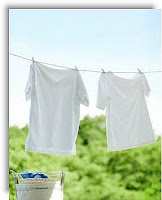We (meaning my wife and a couple we’re close with) have running joke that when our kids exhibit behavior or say something that is totally beyond appropriate or not in line with the way of a young mensch/maidel-Yisrael, we say that they must have “learned it on the bus”. (Note: We have busing in the afternoons from school to home for our kids, thanks to the tireless efforts of the Agudath Israel of Illinois. This is truly a bracha in many ways.)
Yesterday my 5th grader told my wife that the bus driver and, even, several 8th grade boys have been “swearing” on the bus and that he and a friend were going to speak to the principal about it. I asked him exactly what words and he told me. One started with S and one with F (and it wasn’t Simcha and Freilich, although if we lived in an extremely anti-chassidishe world, it would be really funny if those words were considered “swear words”).
So, I asked him if he had known about those words before yesterday. He had, but he had never actually heard them said. This opened the door to a short conversation about Nivul Peh and the responsibility to use the mouth that Hashem gave us for serving Hashem with our words. I suppose that I should be happy he lasted this long without really hearing those kind of words.
I know there are times when I’ve gotten injured or angry about something and before I know it I’ve uttered a word that I normally wouldn’t think of using. People slip (commit an aveira, distance themselves from Hashem’s Kedusha, call it what you wish) and hopeful try to better themselves. What bothers me is that I happen to know a handful of people who I think of as good Yidden, but who will casually throw in an occasional Simcha or Freilich when they feel like it. Now, it may be a habit leftover from their past, it may be that they feel it’s acceptable to do so based on the culture (since those words are allowed in PG-13 movies, songs, tv), or their way of expressing themselves within a religion that seems to have laws about everything, or because English isn’t viewed as loshon haKodesh. I’m sure they have their reasons.
What bothers me is that it’s being done on the bus. Some parents would say that if I don’t like what my kids are being exposed to on the bus, then speak to the Agudath about getting a money back from what I initially paid for bus service and just pick up my son from school myself. That’s one way to deal with it. My son and his friend are attempting to see if the administration of the school can try to do something, first. Again, what bothers me is that it’s being done on the bus. On the bus with an adult who is busy driving the bus (which is his job). On the bus that has a group of 4th-8th grade boys hanging out on their way home from school. On the bus without any “adult” watching their behavior. Without anyone to be accountable to.
Many kids, even from the best, frum, homes don’t feel that accountability all the time. That feeling that is stated as the first thing in the Kitzur Shulchan Aruch, the concept of “Shevisi Hashem l’negdi tamid – I have placed Hashem constantly before me”, is something that goes beyond home, shul, and school. This, in my own opinion, is half of the problem. The other half, and maybe the root of the problem, is that some kids (and adults, like this writer) forget that the greatest Yetzer Hora is to forget that they themselves are the son or daughter of the King.
Call it a lack of B’tzlem Elokeim.
Call it being in the dark about Gadlus HaAdom.
Call it not understanding the goal of shelaymus.
Call it a result of not knowing that D’veykus with Hashem is a good thing.
How do we act when we think that no one is looking? The bus just happens to be the lab where the experiment takes place. The drive to work is also the lab. Being in your office is the lab. Going shopping is the lab. We control the results of the experiment.
For sources on Nivul Peh, see R Morechai Torczner’s HaMakor site.
For resources about why not to curse, see the Bleep! site.






